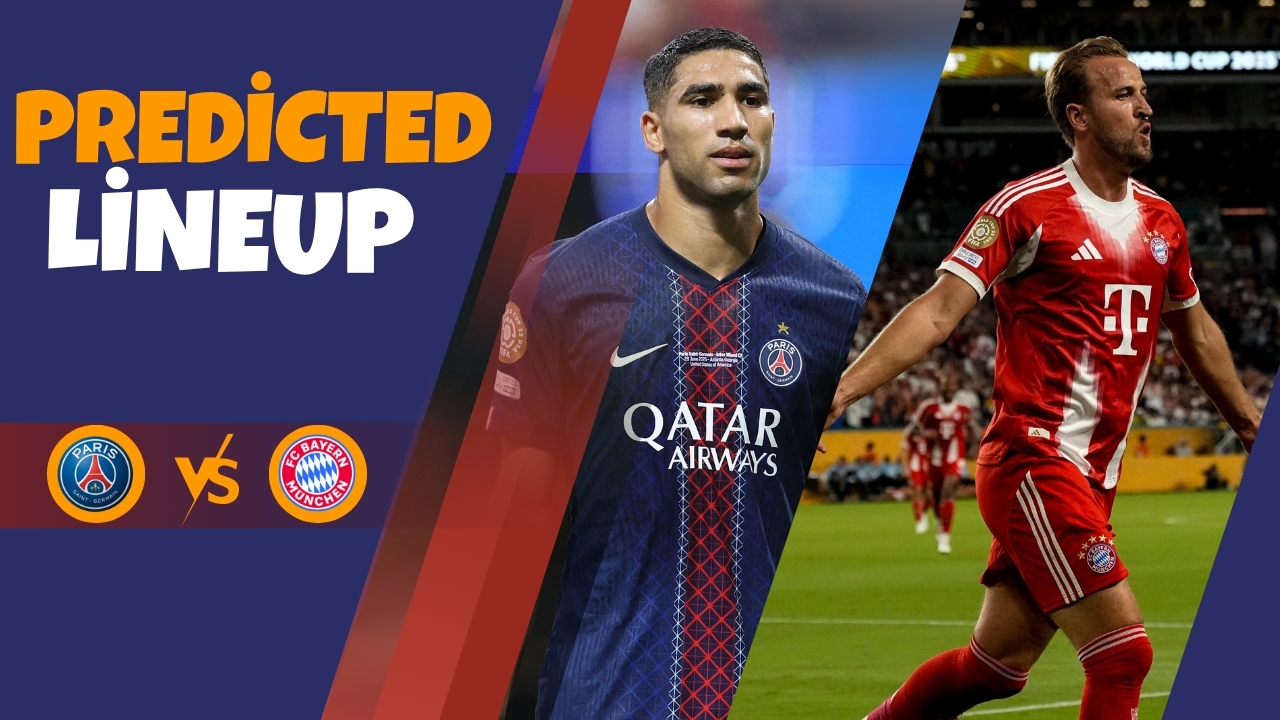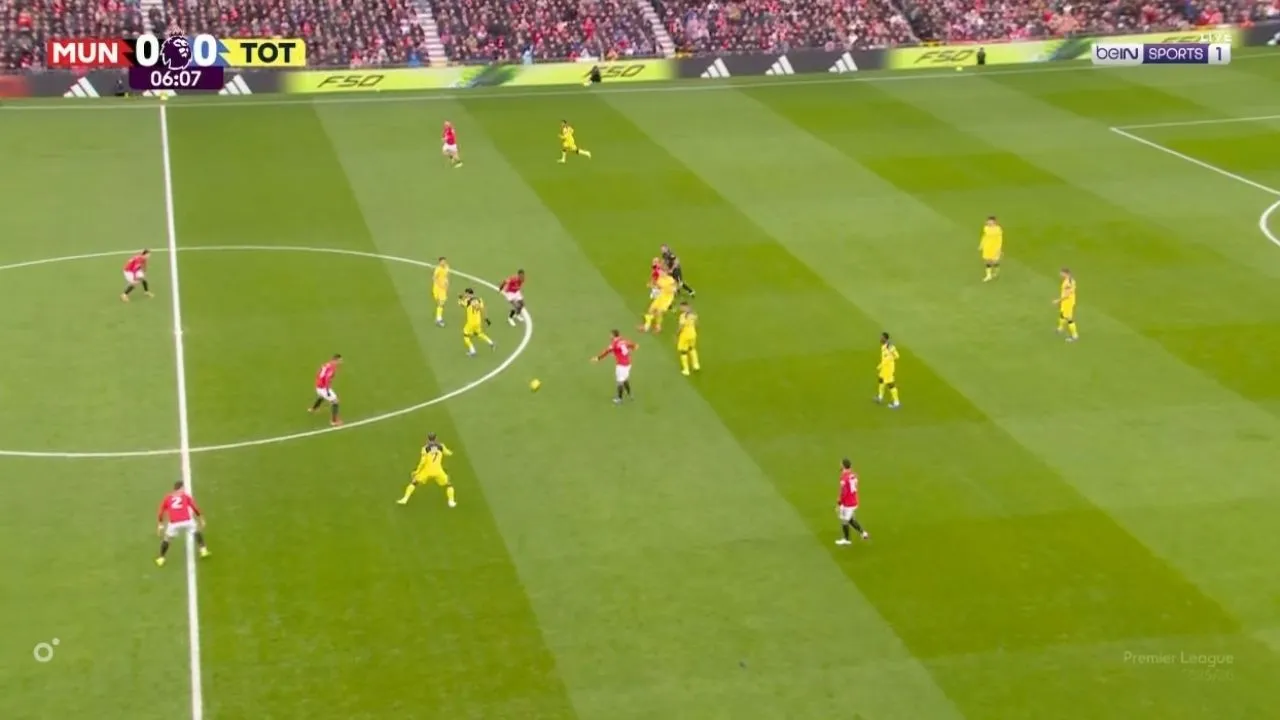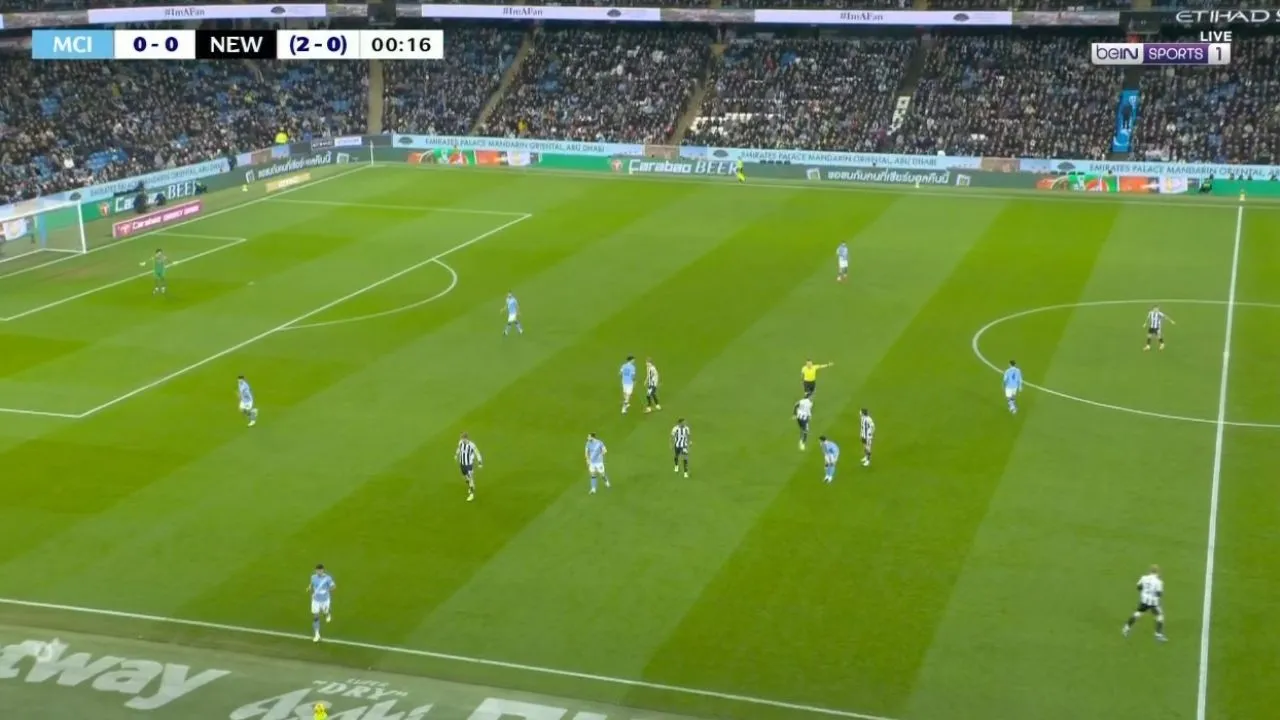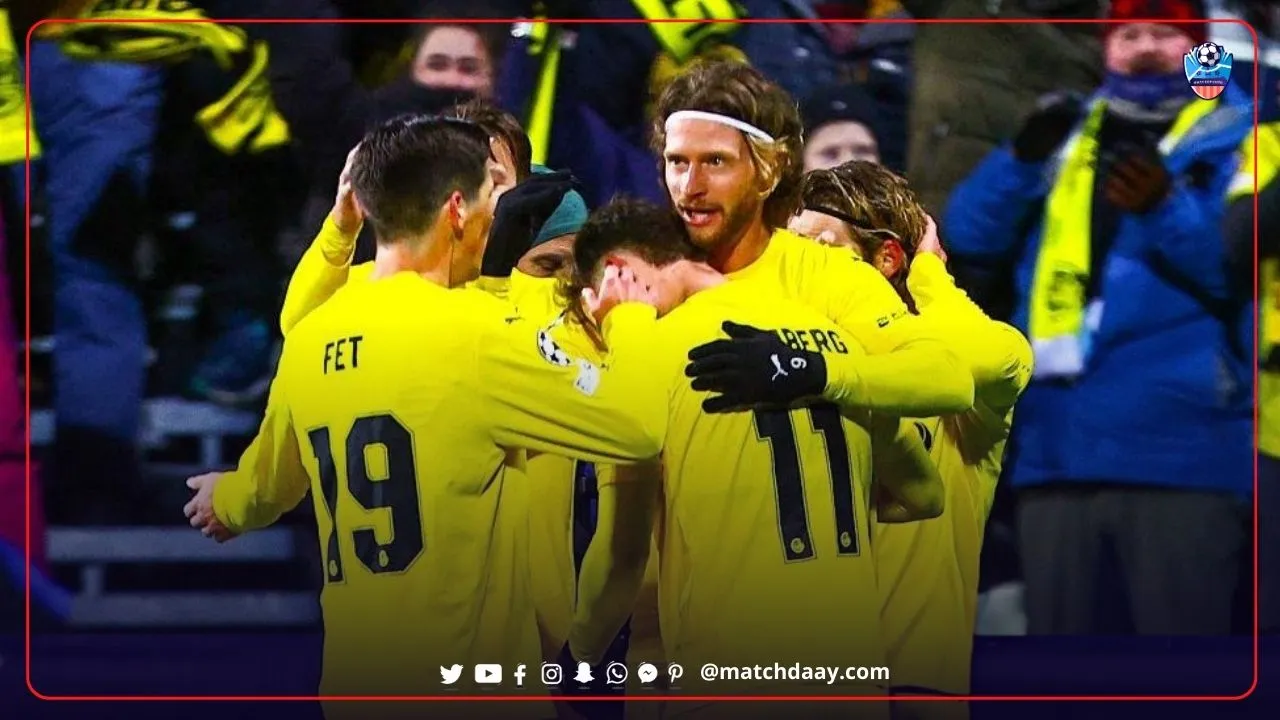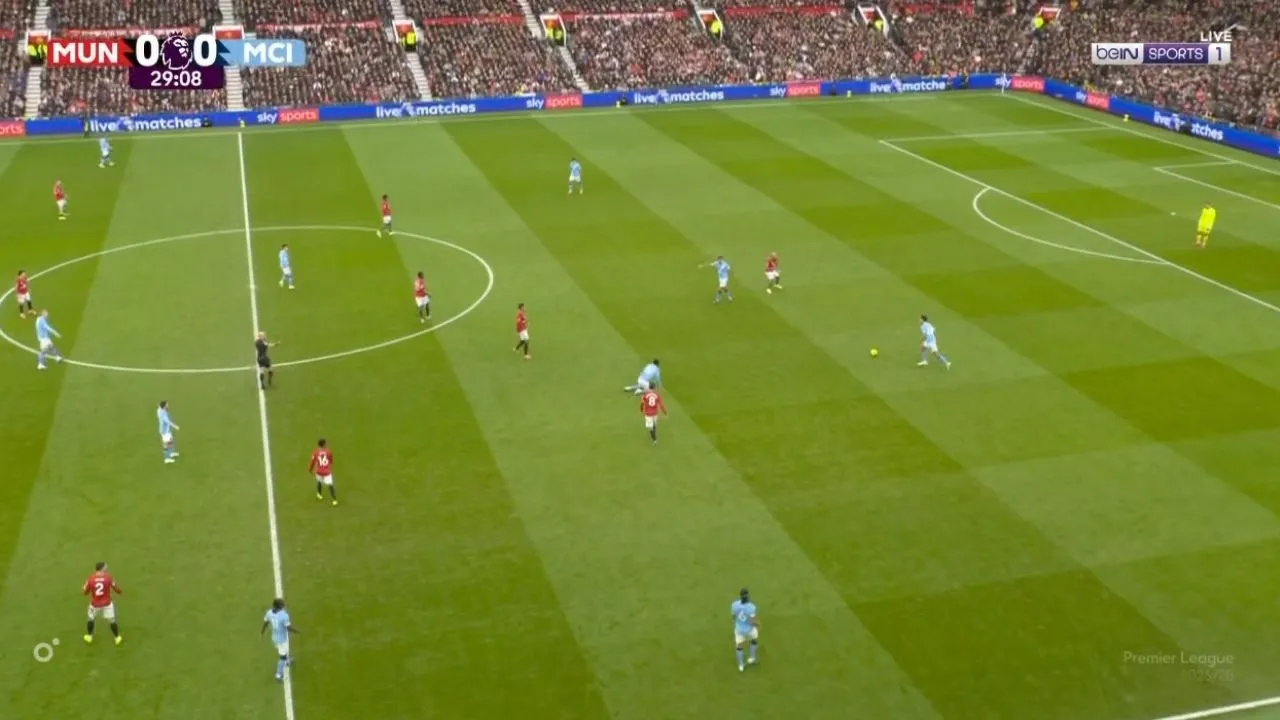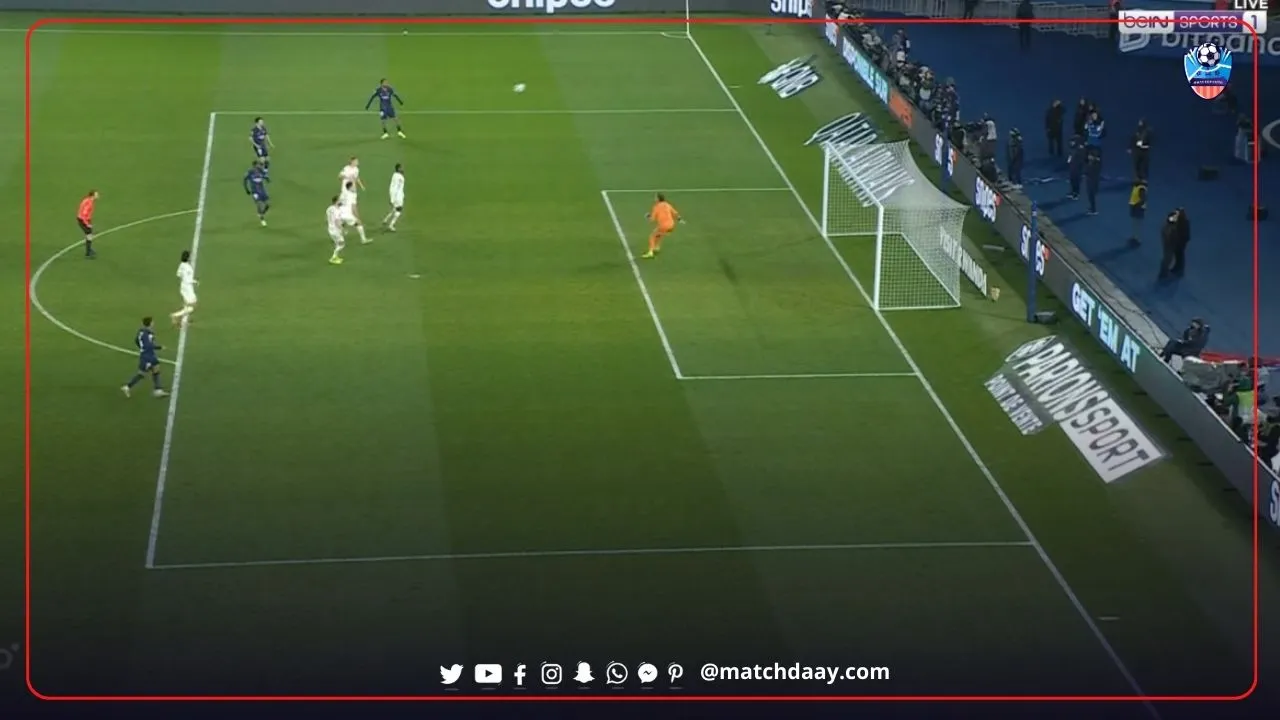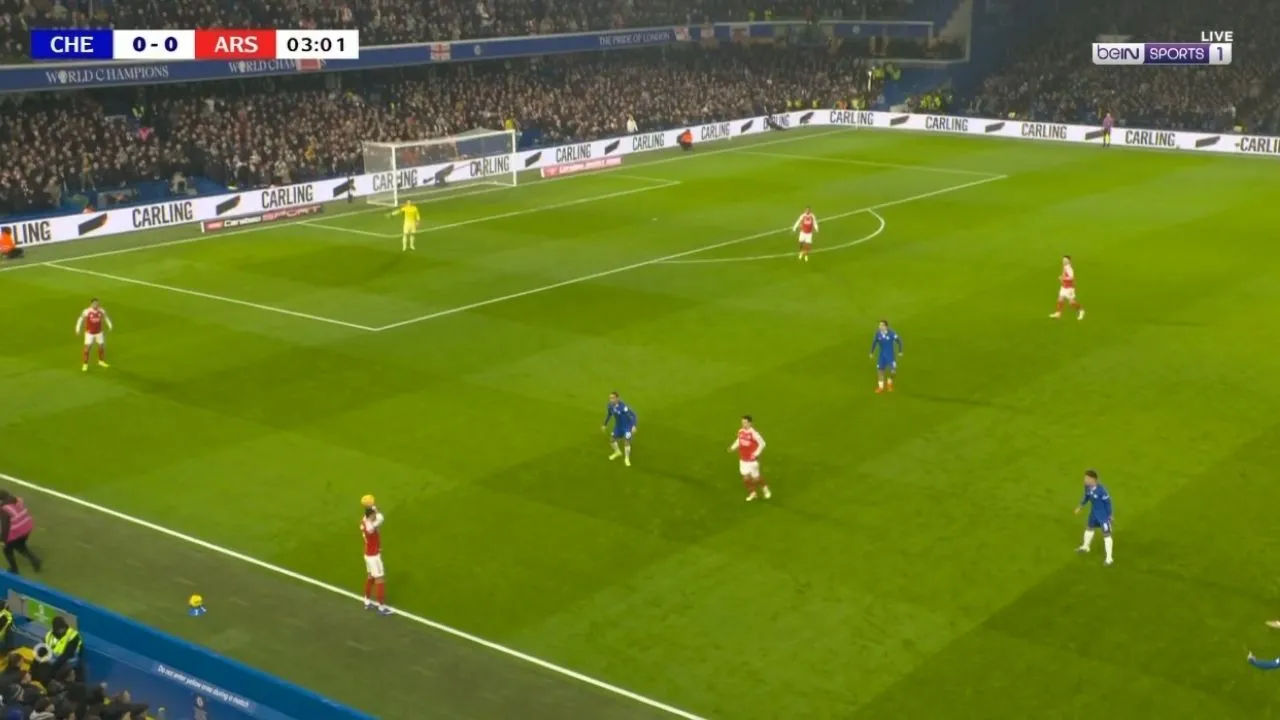Your guide to the PSG vs Bayern probable lineups and a full tactical preview for the Club World Cup. Includes key battles and our match prediction.
 FIFA Club World Cup
FIFA Club World Cup Fluminense
Fluminense Al-Hilal Saudi FC
Al-Hilal Saudi FC- Info
- Lineups
- Stats
- Events
- Standings
| Date | July 4, 2025 |
|---|---|
| Time | 20:00 |
| League | FIFA Club World Cup |
| Status | FT |
Group D
| # | Team | P | W | D | L | Pts |
|---|---|---|---|---|---|---|
| 1 |
 Flamengo
Flamengo | 3 | 2 | 1 | 0 | 7 |
| 2 |
 Chelsea
Chelsea | 3 | 2 | 0 | 1 | 6 |
| 3 |
 ES Tunis
ES Tunis | 3 | 1 | 0 | 2 | 3 |
| 4 |
 Los Angeles FC
Los Angeles FC | 3 | 0 | 1 | 2 | 1 |
Group G
| # | Team | P | W | D | L | Pts |
|---|---|---|---|---|---|---|
| 1 |
 Manchester City
Manchester City | 3 | 3 | 0 | 0 | 9 |
| 2 |
 Juventus
Juventus | 3 | 2 | 0 | 1 | 6 |
| 3 |
 Al Ain
Al Ain | 3 | 1 | 0 | 2 | 3 |
| 4 |
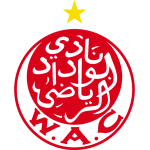 Wydad AC
Wydad AC | 3 | 0 | 0 | 3 | 0 |
Group B
| # | Team | P | W | D | L | Pts |
|---|---|---|---|---|---|---|
| 1 |
 Paris Saint Germain
Paris Saint Germain | 3 | 2 | 0 | 1 | 6 |
| 2 |
 Botafogo
Botafogo | 3 | 2 | 0 | 1 | 6 |
| 3 |
 Atletico Madrid
Atletico Madrid | 3 | 2 | 0 | 1 | 6 |
| 4 |
 Seattle Sounders
Seattle Sounders | 3 | 0 | 0 | 3 | 0 |
Group A
| # | Team | P | W | D | L | Pts |
|---|---|---|---|---|---|---|
| 1 |
 Palmeiras
Palmeiras | 3 | 1 | 2 | 0 | 5 |
| 2 |
 Inter Miami
Inter Miami | 3 | 1 | 2 | 0 | 5 |
| 3 |
 FC Porto
FC Porto | 3 | 0 | 2 | 1 | 2 |
| 4 |
 Al Ahly
Al Ahly | 3 | 0 | 2 | 1 | 2 |
Group F
| # | Team | P | W | D | L | Pts |
|---|---|---|---|---|---|---|
| 1 |
 Borussia Dortmund
Borussia Dortmund | 3 | 2 | 1 | 0 | 7 |
| 2 |
 Fluminense
Fluminense | 3 | 1 | 2 | 0 | 5 |
| 3 |
 Mamelodi Sundowns
Mamelodi Sundowns | 3 | 1 | 1 | 1 | 4 |
| 4 |
 Ulsan Hyundai FC
Ulsan Hyundai FC | 3 | 0 | 0 | 3 | 0 |
Group C
| # | Team | P | W | D | L | Pts |
|---|---|---|---|---|---|---|
| 1 |
 Benfica
Benfica | 3 | 2 | 1 | 0 | 7 |
| 2 |
 Bayern München
Bayern München | 3 | 2 | 0 | 1 | 6 |
| 3 |
 Boca Juniors
Boca Juniors | 3 | 0 | 2 | 1 | 2 |
| 4 |
 Auckland City
Auckland City | 3 | 0 | 1 | 2 | 1 |
Group E
| # | Team | P | W | D | L | Pts |
|---|---|---|---|---|---|---|
| 1 |
 Inter
Inter | 3 | 2 | 1 | 0 | 7 |
| 2 |
 Monterrey
Monterrey | 3 | 1 | 2 | 0 | 5 |
| 3 |
 River Plate
River Plate | 3 | 1 | 1 | 1 | 4 |
| 4 |
 Urawa
Urawa | 3 | 0 | 0 | 3 | 0 |
Group H
| # | Team | P | W | D | L | Pts |
|---|---|---|---|---|---|---|
| 1 |
 Real Madrid
Real Madrid | 3 | 2 | 1 | 0 | 7 |
| 2 |
 Al-Hilal Saudi FC
Al-Hilal Saudi FC | 3 | 1 | 2 | 0 | 5 |
| 3 |
 Red Bull Salzburg
Red Bull Salzburg | 3 | 1 | 1 | 1 | 4 |
| 4 |
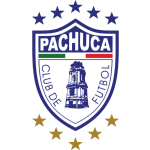 Pachuca
Pachuca | 3 | 0 | 0 | 3 | 0 |
On Saturday, July 5, 2025, the state-of-the-art Mercedes-Benz Stadium in Atlanta, Georgia, will become the epicenter of the footballing world. The occasion is a quarterfinal showdown in the newly expanded FIFA Club World Cup, a fixture that transcends its place in the tournament bracket. This is not merely a match for a semifinal berth; it is a symbolic collision between two of Europe’s most dominant forces, a contest that pits the continent’s newly anointed king against its most established dynasty. The match is scheduled for a 12:00 PM ET kickoff (9:00 AM PT), promising a spectacle of the highest caliber.
In one corner stands Paris Saint-Germain, a club transformed. Fresh from securing a historic treble, including their first-ever UEFA Champions League title, the Parisians arrive in the United States not as ambitious challengers but as the reigning champions of Europe. Under the meticulous guidance of manager Luis Enrique, they have shed their reputation for individualistic brilliance in favor of a devastatingly effective collective identity. In the other corner is FC Bayern Munich, the perennial German powerhouse and a club steeped in continental and global success. As two-time winners of this competition, the Bavarians carry the weight of history and an ingrained expectation of victory. This encounter represents a fascinating inversion of their historical power dynamic, setting the stage for a tactical and psychological battle of immense proportions.
#FIFACWC Quarter-Finals. 🔜#CWC2025 pic.twitter.com/D8teRKXUIq
— Match Spoots (@matchspoots) July 2, 2025
The Path to the Quarterfinals: A Tale of Two Journeys
The routes taken by these two giants to reach this quarterfinal stage reveal the fundamental essence of their current identities and hint at the tactical battle to come. Their journeys have been a study in contrasts: one of controlled, methodical dominance, the other of explosive, albeit flawed, brilliance.
PSG’s Controlled Dominance
Paris Saint-Germain’s progression through the tournament has been a masterclass in game management and tactical discipline. They navigated the group stage with an air of serene control, topping Group B with impressive victories over Urawa Red Diamonds (3-0) and Club América (2-1). Their lone setback, a narrow 1-0 defeat to Brazilian side Botafogo, came with a heavily rotated squad, a decision that underscored Luis Enrique’s confidence in his system and his focus on managing resources for the deeper stages of the competition. This tactical foresight paid dividends in the Round of 16, where a full-strength PSG unleashed their attacking firepower to dismantle Inter Miami in a commanding 4-0 victory, a match that showcased the team’s sharp collective form and the burgeoning goal threat of midfielder João Neves, who netted twice. Their defensive record has been particularly remarkable; they have conceded just a single goal throughout the tournament, a testament to their structural integrity and collective work rate. This path paints a picture of a team that is not just winning, but winning with an unnerving level of control, capable of suffocating opponents defensively and striking with lethal precision when required.
Bayern’s Explosive but Flawed Campaign
Bayern Munich’s road to Atlanta has been far more tumultuous, characterized by moments of breathtaking attacking prowess interspersed with displays of defensive vulnerability. They announced their arrival with a stunning 10-0 demolition of Auckland City, a result that immediately established them as one of the tournament’s heavy favorites. However, their campaign quickly became more complicated. A hard-fought 2-1 victory over Boca Juniors was followed by a surprising 1-0 loss to Benfica, a match where, like PSG, they fielded a second-string lineup. This defeat relegated them to second place in their group, setting up a challenging Round of 16 tie against Brazilian giants Flamengo. In that match, Bayern’s identity was on full display. They ran out 4-2 winners, with Harry Kane scoring a brace, showcasing an attack that can overwhelm any opponent. Yet, conceding two goals highlighted a defensive fragility that has been a recurring theme. While they are the tournament’s top scorers with 16 goals, they have also conceded four times in their last three matches, a stark contrast to PSG’s defensive parsimony. Their journey has been one of chaotic brilliance, a team that relies on its immense offensive power to outscore opponents, suggesting a potential weakness that PSG will be keen to exploit.
Current Form and Market Sentiment
An examination of recent results further illuminates the differing natures of the two clubs. PSG enters the match having won eight of their last nine fixtures across all competitions, a run that includes their 5-0 thrashing of Inter Milan in the Champions League final and their 4-0 wins over Atlético Madrid and Inter Miami in this tournament. Their only blemish was the calculated 1-0 group stage loss to Botafogo. Bayern have also won four of their last five, but their results have been less emphatic, including the 4-2 win over Flamengo and the 1-0 loss to Benfica.
This context is reflected in the external sentiment of the betting markets. As of July 3, DraftKings Sportsbook listed Paris Saint-Germain as the slight favorites at +125, with Bayern Munich as underdogs at +200 and a draw at +265. This positioning acknowledges PSG’s elevated status as reigning European champions and their more consistent form, while still respecting Bayern’s formidable reputation and attacking threat. The odds encapsulate the central narrative: a clash between PSG’s methodical control and Bayern’s chaotic firepower, with the outcome hinging on which team can successfully impose its will upon the other.
The Managerial Duel: Enrique’s Fluidity vs. Kompany’s Ferocity
At the heart of this quarterfinal lies a fascinating clash of managerial philosophies. Luis Enrique’s Paris Saint-Germain and Vincent Kompany’s Bayern Munich are both proponents of proactive, possession-based football, yet their application of these principles creates a compelling tactical dichotomy. The match will be decided not just by the players on the pitch, but by the strategic battle between two of the game’s most distinct modern coaches.
The Enrique Doctrine: Positional Play Perfected
Luis Enrique has transformed PSG from a collection of superstars into a cohesive, fluid, and tactically sophisticated unit. The team’s base 4-3-3 formation is merely a starting point for a system of relentless movement and positional rotation. In possession, this shape fluidly morphs into an aggressive 3-2-5 or even a 3-1-6 attacking structure, designed to dominate both the ball and the territory.
The core principles of this doctrine are clear. PSG aims to control the rhythm of the game through sustained possession, using their technical superiority to disorganize the opposition’s defensive shape. This is achieved through the high and wide positioning of their full-backs, Achraf Hakimi and Nuno Mendes, who stretch the pitch and create one-on-one situations for the wingers. The midfield trio of Vitinha, João Neves, and Fabián Ruiz acts as the system’s engine. Through constant scanning, rotation, and quick, incisive passing, they create numerical superiority in the center of the park, allowing PSG to resist pressure and methodically progress the ball into the final third. This is a team built to be press-resistant, patiently probing for weaknesses before executing a killer blow.
Kompanyball: High-Risk, High-Reward Football
Vincent Kompany, a disciple of the Pep Guardiola school of thought, has instilled a philosophy at Bayern that is equally aggressive but fundamentally different in its expression. “Kompanyball” is defined by its ferocity and its commitment to a high-risk, high-reward approach. Operating from a nominal 4-2-3-1, Bayern’s primary objective is to win the ball back as high up the pitch as possible and transition to attack with devastating speed.
The cornerstone of this system is an intense, often man-oriented, high press. Kompany’s side aims to suffocate opponents in their own half, forcing turnovers in dangerous areas and capitalizing on the chaos created by a disrupted build-up. This proactive defensive strategy serves as their primary source of chance creation. However, this aggression comes with inherent risks. To facilitate the press, Bayern employs a high defensive line, a tactic that can leave their center-backs dangerously isolated against quick counter-attacks if the initial press is bypassed. It is a system that lives on a knife’s edge, capable of overwhelming opponents but also susceptible to being undone by precise, vertical play.
The Pressing Conundrum: An Irresistible Force Meets a Press-Resistant Object
This tactical duel will crystallize in the battle of the presses. Both teams are among the most proficient pressing units in world football. Data from this tournament shows PSG leading all teams in high-intensity pressures in the final third with 366, with Bayern a close second at 337. This sets up a classic confrontation: an irresistible force in Bayern’s press against a seemingly press-resistant object in PSG’s build-up.
The central question is which system will bend the other to its will. Can PSG’s midfield trio, with their constant rotation and technical security, calmly play through Bayern’s aggressive man-marking scheme? Their ability to create triangles and find the free man is designed specifically to solve this kind of puzzle. Conversely, will Bayern’s organized and relentless pressure—a level of sustained intensity that PSG may not have faced this season—force uncharacteristic errors from the Parisians? The team that can execute its own philosophy while under the suffocating pressure of the other’s will gain a decisive strategic advantage. This is not just a battle for possession; it is a battle for control of the game’s fundamental state—PSG’s ordered fluidity versus Bayern’s manufactured chaos.
psg vs bayern Probable Lineups and Personnel Deep Dive
The tactical philosophies of Enrique and Kompany find their ultimate expression through the players at their disposal. An analysis of the probable starting XIs reveals teams brimming with world-class talent, but also highlights key areas of strength and potential vulnerability that will define this encounter.
Paris Saint-Germain (4-3-3): The Treble-Winning Machine
Luis Enrique has settled on a consistent and balanced lineup that has propelled PSG to unprecedented success. Barring any last-minute issues, he is expected to field the side that has become synonymous with their treble-winning campaign.
Probable Lineup (4-3-3):
- Goalkeeper: Gianluigi Donnarumma
- Defenders: Achraf Hakimi, Marquinhos (C), Willian Pacho, Nuno Mendes
- Midfielders: João Neves, Vitinha, Fabián Ruiz
- Forwards: Désiré Doué, Ousmane Dembélé, Khvicha Kvaratskhelia
Goalkeeper & Defense: The foundation of PSG’s success has been their remarkable defensive solidity. Goalkeeper Gianluigi Donnarumma has been a commanding presence, conceding just one goal in the entire tournament. The back four operates as a perfectly balanced unit. On the right, Achraf Hakimi provides relentless attacking thrust, constantly overlapping to create width and has even scored twice himself in the tournament. On the left, Nuno Mendes has cemented his status as arguably the world’s best left-back, offering a perfect defensive and offensive foil to Hakimi’s forays. At the heart of the defense, the partnership of captain Marquinhos and the ever-present Willian Pacho—one of only three PSG players to have played every minute of the tournament—provides a blend of experience, athleticism, and composure.
The Midfield Engine: Vitinha & João Neves: The heartbeat of this PSG side is its Portuguese midfield duo. Their partnership is the engine that drives Enrique’s system, providing a sublime balance of control and dynamism. Vitinha operates as the team’s metronome, a press-resistant controller whose exceptional passing range and tactical intelligence dictate the tempo of the game. Enrique himself has touted him as one of the world’s best in his position. Alongside him is João Neves, the dynamo of the team. The 20-year-old has been a revelation, combining an incredible work rate and tigerish ball-winning—he won more tackles than any other player in their victorious Champions League campaign—with impressive technical quality. His two goals against Inter Miami signaled a new dimension to his game, adding a direct goal threat to his all-action profile. Together with the silky, line-breaking passing of Fabián Ruiz, they form a midfield trio that is incredibly difficult to contain.
The Attack: A Triumvirate of Threats: PSG’s front line is a blend of youthful exuberance, technical wizardry, and relentless industry. On the left, Khvicha Kvaratskhelia has been the team’s standout performer at the Club World Cup, with three goal contributions in four starts. His impact since arriving from Napoli in January has been transformative; his dribbling, creativity, and tireless work ethic perfectly embody the “New PSG” philosophy. The potential return of Ousmane Dembélé to the starting lineup is a monumental boost. After missing the group stage with an injury, his substitute appearance in the last round signaled his readiness. Coming off the best goal-scoring season of his career, he provides a direct, unpredictable threat and will be highly motivated to make amends for his red card in the last meeting against Bayern. Completing the trio is Désiré Doué, the versatile 20-year-old who has started every match but is still searching for his first goal contribution. This high-stakes quarterfinal provides the perfect stage for the prodigious talent to announce his arrival.
Bayern Munich (4-2-3-1): Firepower and Frailty
Vincent Kompany faces a more challenging selection process, with injuries forcing him to field a makeshift defense. However, his team’s attacking firepower remains arguably the most potent in the competition.
Probable Lineup (4-2-3-1):
- Goalkeeper: Manuel Neuer (C)
- Defenders: Konrad Laimer, Jonathan Tah, Dayot Upamecano, Josip Stanišić
- Midfielders: Joshua Kimmich, Leon Goretzka
- Attacking Midfielders: Michael Olise, Jamal Musiala, Kingsley Coman
- Forward: Harry Kane
Goalkeeper & The Makeshift Defense: Captain Manuel Neuer’s leadership and experience will be more crucial than ever, given the state of the defense in front of him. Bayern traveled to the US without key defenders Alphonso Davies and Hiroki Ito, while Kim Min-jae is still recovering from injury and is unlikely to feature. This has forced Kompany to improvise. The central defensive partnership of Jonathan Tah and Dayot Upamecano will face immense pressure from PSG’s fluid attack. The biggest concern lies at right-back, where natural midfielder Konrad Laimer is expected to deputize. This creates a potential mismatch against Kvaratskhelia and represents Bayern’s most significant structural vulnerability.
The Double Pivot: Kimmich & Goretzka: The experienced duo of Joshua Kimmich and Leon Goretzka are tasked with a monumental responsibility: shielding the vulnerable backline while simultaneously attempting to disrupt PSG’s dominant midfield. Kimmich’s world-class passing range will be vital for launching counter-attacks, while Goretzka’s physicality and box-to-box running will be needed to match the energy of Neves and Vitinha. Their ability to maintain positional discipline under pressure will be a key determinant of Bayern’s defensive success.
The Attack: The Kane-Olise Connection: While their defense may be compromised, Bayern’s attack is a fearsome proposition, led by two of the world’s most in-form players. At the apex is Harry Kane, the team’s undisputed leader and goal-scoring machine. He is in scintillating form, leading Bayern’s charge and chasing the tournament’s Golden Boot with three goals already to his name. His all-around game, leadership, and clinical finishing make him the ultimate threat. The primary creative force behind him is Michael Olise. The Frenchman has enjoyed a sensational debut season in Germany, being named Bundesliga Rookie of the Year after topping the league with 15 assists and creating a staggering 32 big chances. In Kompany’s system, he is the chief dribbler and playmaker, operating from the right wing and cutting inside on his lethal left foot. He is, without question, Bayern’s most dangerous creator. The supporting cast is equally potent. Jamal Musiala’s return to fitness provides guile and creativity in the number 10 role , while the pace of Kingsley Coman—if he is fit after a recent knock—offers a direct threat on the left flank.
| Player | Team | Appearances | Goals | Assists |
| Harry Kane | Bayern Munich | 4 | 3 | 1 |
| Michael Olise | Bayern Munich | 4 | 3 | 2 |
| Jamal Musiala | Bayern Munich | 4 | 3 | 0 |
| Khvicha Kvaratskhelia | Paris Saint-Germain | 4 | 0 | 2 |
| João Neves | Paris Saint-Germain | 4 | 2 | 0 |
| Achraf Hakimi | Paris Saint-Germain | 4 | 2 | 0 |
The Decisive Battles on the Pitch
While the managerial philosophies provide the strategic framework, this match will ultimately be decided by a series of critical duels across the pitch. The outcome will hinge on which team can win these individual and collective battles, thereby exposing the structural weaknesses of the other.
Flank Warfare I: Nuno Mendes vs. Michael Olise
This is the marquee matchup of the quarterfinal, a blockbuster battle on PSG’s left flank that pits two of the world’s absolute elite against each other. On one side is Nuno Mendes, a player widely hailed as the best left-back in modern football, whose combination of defensive tenacity and attacking dynamism is unparalleled. On the other is Michael Olise, Bayern’s creative heartbeat, the Bundesliga’s reigning assist king, and a player whose dribbling and playmaking can unlock any defense.
This duel is a microcosm of the entire game. Olise is the primary architect of Bayern’s attack; nearly everything they create flows through his ability to beat his man and deliver a final ball. Mendes is the cornerstone of PSG’s defensive solidity on that side of the pitch. If Mendes can nullify Olise in their one-on-one encounters, he will effectively sever the supply line to Harry Kane and cripple Bayern’s creative engine. However, if Olise can gain the upper hand, using his technical wizardry to create separation, he will force PSG’s defensive structure to collapse inward, opening up space for Kane and other attackers to exploit. It is a classic confrontation between an elite defender and an elite attacker, and its outcome will have a profound impact on the flow of the game.
Flank Warfare II: Khvicha Kvaratskhelia vs. The Makeshift Right-Back
On the opposite flank lies what appears to be PSG’s most significant tactical advantage. The in-form Khvicha Kvaratskhelia, who has been PSG’s most consistently dangerous attacker in this tournament, is set to face Konrad Laimer, a natural central midfielder playing out of position at right-back due to Bayern’s injury crisis.
This mismatch puts enormous pressure on Bayern’s entire defensive structure. Kvaratskhelia is devastating in one-on-one situations, capable of driving to the byline or cutting inside onto his stronger foot to shoot or combine with teammates. Laimer, for all his quality as a midfielder, may lack the specific defensive instincts and footwork of a natural full-back to contain such a dynamic threat. If Kvaratskhelia can consistently dominate this duel, he will force Bayern’s right-sided center-back, Dayot Upamecano, to vacate his central position to provide cover. This action would create a chain reaction, stretching the entire Bayern backline and opening up huge channels for Dembélé and PSG’s midfielders to attack. This flank could be the pressure point that breaks Bayern’s defensive dam.
The Midfield Cauldron: PSG’s Trio vs. Bayern’s Pivot
The battle for control in the center of the park will be a fascinating clash of tactical systems. PSG’s midfield three—Neves, Vitinha, and Ruiz—operate with a fluid, rotational model designed to pull opposition shapes apart and create passing lanes through constant movement. Their primary goal is to maintain possession under pressure and unbalance the opponent’s structure.
They will face Bayern’s more traditional and physically imposing double pivot of Joshua Kimmich and Leon Goretzka. The German duo’s task is to act as a disciplined shield in front of their vulnerable defense. The key question is whether they can maintain their positional integrity against PSG’s relentless movement. If they are dragged out of position while trying to press or follow a rotating midfielder, they will leave the very space behind them that PSG’s attackers are looking to exploit. This is a battle of concepts: can Bayern’s structured, powerful pivot contain PSG’s fluid, technical trio? The winner of this midfield struggle will likely dictate the terms of engagement for the entire match. The success of the flank battles is predicated on which midfield can provide the most stable platform for its attackers.
Fluminense become the first team to reach the Club World Cup semi-finals! 🇧🇷🔥#Fluminense #CWC2025 #ClubWorldCup #SemiFinals pic.twitter.com/VHCkEyFGGJ
— Match Spoots (@matchspoots) July 4, 2025
Historical Precedent, Psychology, and Final Verdict
As the tactical and personnel analyses converge, the final layers of this encounter come into focus: the weight of history, the psychological pressures on both squads, and a synthesized verdict on the likely outcome of this titanic clash.
The Weight of History: Deconstructing the Head-to-Head Record
On paper, the historical record between these two clubs tells a story of clear Bavarian dominance. In their 14 official meetings, Bayern Munich have emerged victorious eight times, compared to six wins for Paris Saint-Germain, with no matches ending in a draw. More pointedly, Bayern have won the last four consecutive encounters, a run that includes the 2020 UEFA Champions League final and, crucially, a 1-0 victory in the Champions League league phase as recently as November 2024. In those four wins, PSG failed to score a single goal, creating a significant psychological hurdle for the French champions to overcome.
However, this historical data must be heavily contextualized. The PSG that Bayern will face in Atlanta is a fundamentally different entity from the one they defeated last November. That match occurred before PSG’s remarkable evolution under Luis Enrique, a transformation that culminated in their first Champions League title. Furthermore, that 1-0 defeat was influenced by a contentious red card shown to Ousmane Dembélé, who is now back and in the form of his life. While the history undoubtedly provides Bayern with a psychological edge and a blueprint for success, its predictive power is severely diminished by PSG’s dramatic ascent. This is not a rematch; it is a new chapter entirely.
| Date | Competition | Venue | Score |
| 05/03/2025 | Champions League | Allianz Arena | Bayern 1-0 PSG |
| 08/03/2023 | Champions League | Allianz Arena | Bayern 2-0 PSG |
| 14/02/2023 | Champions League | Parc des Princes | PSG 0-1 Bayern |
| 13/04/2021 | Champions League | Parc des Princes | PSG 0-1 Bayern |
| 07/04/2021 | Champions League | Allianz Arena | Bayern 2-3 PSG |
| 23/08/2020 | Champions League Final | Estádio da Luz | PSG 0-1 Bayern |
| 05/12/2017 | Champions League | Allianz Arena | Bayern 3-1 PSG |
| 27/09/2017 | Champions League | Parc des Princes | PSG 3-0 Bayern |
| 22/10/2000 | Champions League | Parc des Princes | PSG 1-0 Bayern |
| 13/09/2000 | Champions League | Olympiastadion | Bayern 2-0 PSG |
| 05/11/1997 | Champions League | Parc des Princes | PSG 3-1 Bayern |
| 22/10/1997 | Champions League | Olympiastadion | Bayern 5-1 PSG |
| 01/11/1994 | Champions League | Olympiastadion | Bayern 0-1 PSG |
| 14/09/1994 | Champions League | Parc des Princes | PSG 2-0 Bayern |
The Psychological Dimension: A New PSG Faces an Old Foe
This match will be as much a test of mentality as it is of tactics. For Paris Saint-Germain, the challenge is to prove that their new identity as European champions has exorcised the demons of past failures against Bayern. Luis Enrique has cultivated a new mindset at the club, one where they are no longer chasing the elite but are the elite themselves, “the team everyone wants to beat”. This quarterfinal is the ultimate test of that newfound confidence. Can they play with the authority of a champion and finally break the “Bayern curse”?
For Bayern Munich, the psychology is one of quiet confidence. They draw strength from their history of success in this fixture and their status as a perennial powerhouse. Harry Kane’s pre-match comments, acknowledging PSG’s quality but referencing their previous victory, encapsulate this mindset: they respect their opponent but do not fear them. They believe they have the formula to win. This creates a fascinating dynamic: PSG’s need to prove they have changed versus Bayern’s belief that history will repeat itself.
Expert Conclusion and Prediction
Synthesizing the tactical, personnel, and psychological factors leads to a nuanced conclusion. This quarterfinal is balanced on a knife’s edge, with the outcome hinging on the interplay of three critical variables:
- Bayern’s Press vs. PSG’s Poise: The success of Bayern’s entire strategy depends on their ability to disrupt PSG’s build-up with their high press. If PSG’s midfield can withstand this pressure and play through it, Bayern’s high defensive line will be fatally exposed.
- PSG’s Attack vs. Bayern’s Defense: The most significant on-paper mismatch lies here. Can PSG’s dynamic wingers, particularly Kvaratskhelia, systematically exploit the vulnerabilities in Bayern’s injury-ravaged and makeshift backline?
- The Olise Factor: Can PSG’s world-class defense, led by Nuno Mendes, contain Michael Olise, Bayern’s most potent creative player? Shutting him down would starve Harry Kane of service and force Bayern to find alternative, less effective routes to goal.
While Bayern Munich’s formidable history in this fixture and the undeniable, game-changing quality of individuals like Harry Kane and Michael Olise make them a dangerous opponent, the evidence points towards a victory for Paris Saint-Germain. PSG’s superior tactical cohesion, their remarkable defensive stability throughout the tournament, and the glaring mismatches they can exploit on the flanks give them a decisive structural advantage.
The “New PSG” appears both tactically and psychologically equipped to overcome their old nemesis. Expect Bayern to start with ferocious intensity, pressing high and looking to force an early mistake. However, as the game wears on, PSG’s technical security and press resistance should allow them to establish control. From there, they will likely begin to systematically exploit the space on Bayern’s right flank, using the Kvaratskhelia-Laimer mismatch as their primary point of attack. While Bayern’s attack will always pose a threat, PSG’s defensive organization seems better equipped to handle it than Bayern’s defense is to handle PSG’s. This has the makings of a statement victory for the new kings of Europe.
Predicted Score: Paris Saint-Germain 3-1 Bayern Munich.
